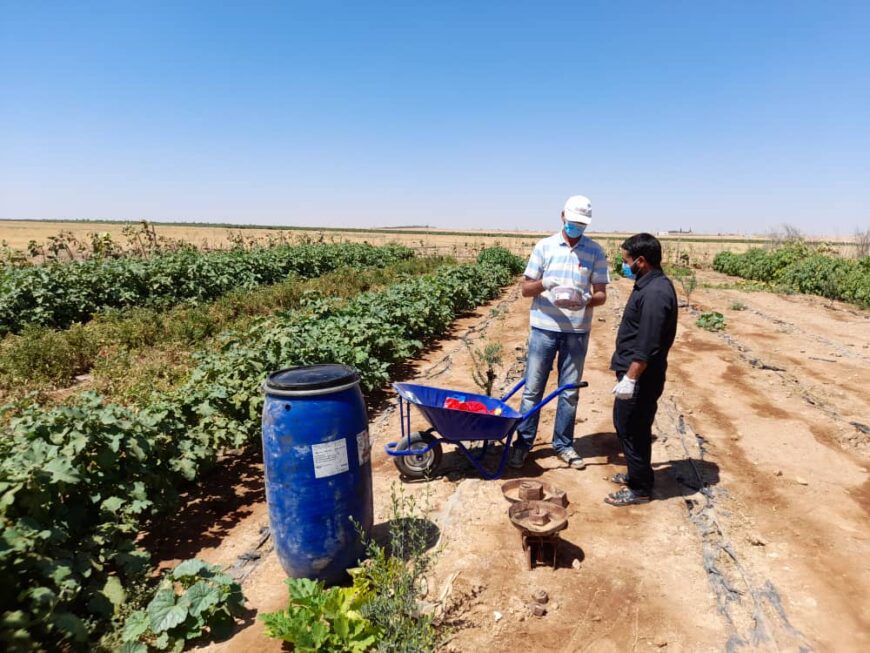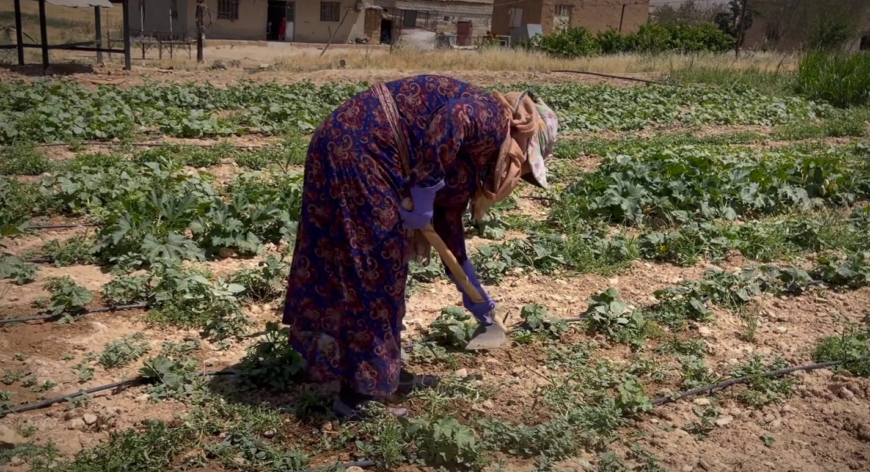With the Syrian crisis ending its twelfth year, the humanitarian situation remains alarming and vulnerable populations continue to face deteriorating socio-economic conditions. Humanitarian interventions remain critical in Syria, yet it is essential that they are complemented with a longer-term approach to support the early recovery and resilience building efforts of impacted communities.
In the face of the protracted crisis, it is paramount to support local service delivery actors to enhance resilience building efforts. Of particular importance is to provide continued support through capacity building schemes to Civil Society Organisations (CSOs) to ensure they can fulfil their role in addressing the long-term effects of the protracted crisis, including the fight against climate change. Building their capacities and supporting them to implement these actions, owned by the communities, will in turn positively influence the stability of the area. However, significant constraints inhibit the ability of civil society actors to provide services and help repair the fragmented social fabric.
With funding from EuropeAid, Acted supported 12 CSOs across Syria for over 18 months by providing capacity building schemes to improve their ability to provide services to local communities.
Supporting CSOs in Northern Syria for community development and resilience projects
Acted delivered three-month long trainings to 12 CSOs, reaching a total of 263 CSOs staff. Following this and based on the evaluation of concept notes submitted by the CSOs, Acted selected five CSOs to be supported in delivering basic needs to vulnerable communities, contributing to the early recovery and resilience of the targeted communities and taking into account their needs and feedback in a participatory way.
Muhammed is the head of one of the CSOs in Syria. His CSO was founded in 2018 to support people affected by the ongoing crisis. Prior to Acted’s intervention, his CSO faced major challenges due to the absence of internal structure, lack of vision and the absence of clear plans:
We had no board elections, documented meetings and human resources department, in addition to limited knowledge in donor communication and proposal writing. Our activities lacked defined work plans and fell short of organisational standards. A comprehensive overhaul was urgently needed.
Based on the CSO’s identified weaknesses, Acted provided a wide range of training topics, as Muhammed explains:
We went through extensive training provided by Acted, significantly boosting our organisational capabilities. The trainings revolved around different key sectors, such as management, human resources, logistics, financial management, and strategic planning. Plus, we gained specialised insights in project management and monitoring, ensuring efficient program implementation. What's worth highlighting is our newfound awareness of sustainable practices through environmental training.
Following the capacity building trainings provided by Acted, Muhammed’s CSO implemented a seven-month long project – from January 2023 to July 2023 – focusing on agricultural support to farmers. The project included the distribution of drip irrigation and harvesting equipment, inputs for summer vegetables and the provision of technical trainings to 44 farmers.
Jamila, a 33-year-old woman residing in Syria with her husband and two children, relies solely on farming for their livelihood. They benefited from the project implemented by the CSO. Since the beginning of the crisis, the escalating prices of agricultural inputs and equipment have placed a significant financial strain on their family. However, Acted’s intervention helped Jamila and her family to boost her farming activity:
We received seeds, equipment and organic fertilisers. In addition, we received trainings on irrigation extension, maximising seed benefits, proper planting techniques, and efficient organic fertiliser usage — including application methods and optimal timing/quantity. These resources not only enable us to provide for our children but also enhance our overall quality of life.
Thinking about the future, Jamila explains:
In the upcoming years, I plan to expand my work, increase cultivation and production, and grow more crops.
Acted has played a pivotal role in improving the capacities of local CSOs to provide services to people in need. Through Acted’s support, these CSOs were able to significantly benefit their local communities, making a significant stride towards local sustainable development.

